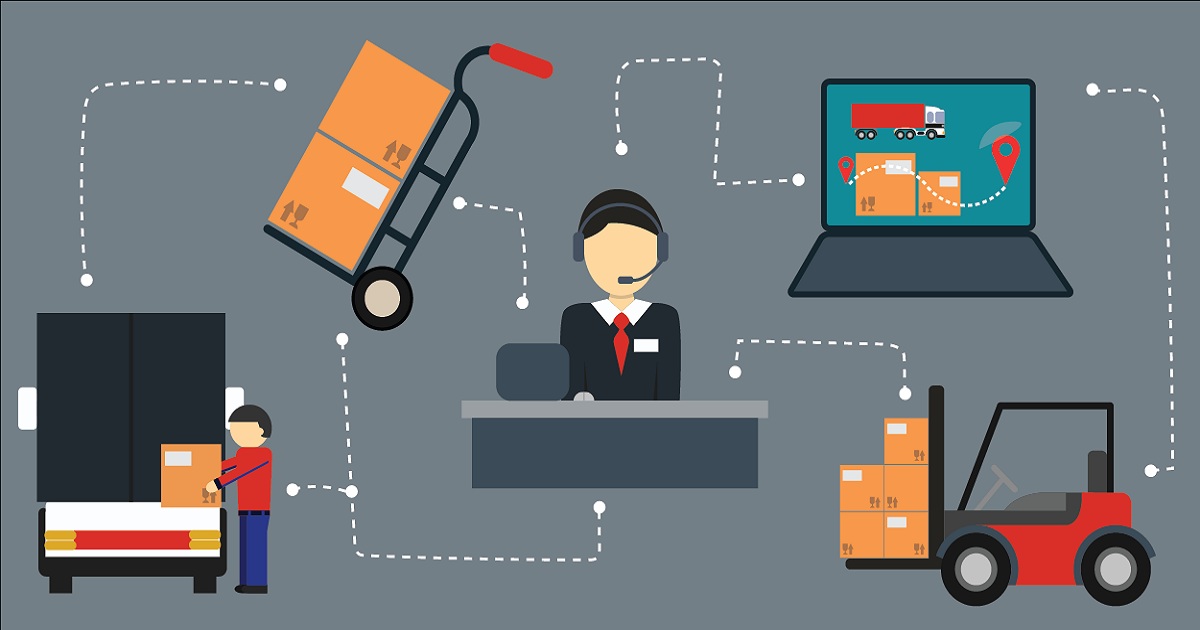
Supply Chain
Article | May 22, 2023
The logistics sector is experiencing a significant technological shift similar to that of all other industries due to the growing need for remote work solutions. Social networking, the Internet of Things (IoT), cloud-based logistics, and other technological advancements are reshaping the logistics industry and moving it in a new direction. Additionally, the supply chain and logistics as a whole are greatly influenced by factors like transportation and digital transformation.
Modern digital technology is fundamentally altering how various sectors function. Increased connectivity amongst the people has also increased the needs of customers, created new purchasing habits, and gave birth to an entirely new industry as a whole, e-commerce.
The Shift Towards the Could Technology
Over the past few years, the transportation and logistics industry has witnessed a shift towards digitization as more and more people have access to the internet and computer for day-to-day work.
From online grocery stores to local delivery apps and even on-demand airport shuttle services, the adoption of cloud technologies has given a viable solution to customers and businesses at a lower cost than before. As a growing number of businesses reevaluate their use of innovative technologies, cloud computing is becoming an increasingly serious and practical choice.
The cloud is of significant use in the world of freight transportation and logistics, as it stores crucial shipping information that can be accessed at any time via transportation management systems from anywhere. The technology is emerging as a game changer for the businesses operating in the logistics industry. Here is a list of benefits cloud technologies offer:
Logistical space planning
Real-time package updates
Leverage artificial intelligence (AI) and machine learning (ML)
Vehicle health monitoring
E-ticketing management
Final Thought
Cloud-based solutions have enormous potential to improve operational and financial efficiency in the transportation and logistics industry. Some facets of cloud-based solutions also have the ability to transform the overall shipping experience altogether. Assessing the merits of this technology, a large number of leading businesses are incorporating it for applications such as fleet-specific planning, shipment optimization, faster delivery, and others. In the coming years, cloud-based solutions are likely to become very popular in the supply chain industry as they keep getting better.
Read More

Warehousing and Distribution
Article | July 11, 2023
Innovations such as AI and automation have been tipped to kickstart the Fourth Revolution. While the technology is being widely adopted, it is constantly evolving. Therefore, there is uncertainty surrounding its overall impact, particularly on professional roles within the supply chain. Some fear that the technology will replace its human counterparts, while other experts suggest it will work in unison with humans, supporting them to focus on higher value opportunities. Amidst all of this uncertainty one thing is for certain: AI and automation will change how we operate.
Read More

Supply Chain
Article | August 17, 2023
Transportation has always been the cornerstone of the supply chain and arguably its most targeted area when something goes wrong with a shipment. Why is my package late? What is my load’s current location? What is the ETA for my order? These are the daily questions that come from warehouses, distribution centers, and their end consumers – and they’re being asked now more than ever. Answering these questions requires holistic visibility into your supply chain that can only be achieved with the right mix of transportation technology and data management.
Read More

Management
Article | June 21, 2023
Enhance operational efficiency by implementing industry-approved methods for multi-channel inventory management. Taking a holistic approach to control inventory helps multiple sales channels grow.
Multi-channel inventory management is a crucial aspect of the supply chain process that ensures the goods are available to customers through different sales channels. However, with growing penetration of ecommerce technologies and the increasing complexity of supply chain networks, managing inventory across multiple channels has become daunting for businesses. The ability to accurately track inventory levels, ensure stock availability across channels, and optimize fulfillment processes has become critical to achieve success in today's competitive business landscape.
Managing inventory across multiple channels require real-time visibility and tracking of inventory levels which further streamlines the complex process. Inaccurate inventory data can lead to stockouts, overstocking, and lost sales, negatively impacting the business's bottom line. To combat these challenges, businesses must implement a robust multi-channel inventory management system to track inventory across all channels, synchronize stock levels, and automate order fulfillment processes.
An inventory management system can offer businesses a consolidated view of inventory at various locations, such as warehouses, stores, and even online channels. An organized approach is crucial while managing multi-channel inventory or keeping track of moving inventory. Implementing an effective inventory management procedure, managing multi-channel inventory becomes more streamlined and simplified, as well as provides a comprehensive overview.
In addition, as businesses continue to expand their sales channels, multi-channel inventory management has become a vital component of supply chain management. By adopting best practices in multi-channel inventory management, businesses can ensure on-demand access, accurate inventory data, and seamless order fulfilment processes. Additionally, implementing the right procedures will allow organizations to observe an increase in customer satisfaction and experience significant business growth.
The article takes an in-depth look at key benefits, potential challenges, procedural considerations, and the significance of multi-channel inventory management. It delves into the impact of this approach on supply chain performance while providing valuable insights into best practices.
1. Centralize Inventory Management Process
Centralizing multi-channel inventory helps manage supply chain businesses across various channels and locations. Businesses can gain better visibility and control over their inventory processes by consolidating inventory data. However, centralizing inventory management is not without its challenges. One of the major obstacles faced by organizations is ensuring the accuracy and consistency of data across different locations and channels.
Another barrier is integrating various inventory management tools and technologies into a single system. Despite these challenges, centralizing inventory management offers significant benefits, including improved efficiency and reduced costs. In addition, businesses can leverage cloud-based inventory management software and standard operating procedures to centralize and optimize inventory management processes effectively.
2. Adopt Lean Inventory Management Approach
The lean inventory management approach is adequate for managing multi-channel inventory in supply chain businesses. This approach involves reducing excess inventory and only stocking items in demand. While implementation of the approach is complex due to the need for accurate demand forecasting and inventory tracking, it offers multiple advantages, such as reduced inventory carrying costs, improved cash flow, and increased customer satisfaction. To implement a lean inventory management approach in the supply chain business, follow these steps:
Conduct inventory analysis
Categorize items based on value and demand
Implement just-in-time (JIT) replenishment
Leverage forecasting tools
Establish cycle counting and monitoring procedures
Strive for continuous process improvement
This approach helps businesses achieve better inventory accuracy, increase operational agility, and meet customer demands across multiple channels.
3. Utilize ABC Inventory Analysis
ABC inventory analysis is a widely used best practice for multi-channel inventory management in the supply chain. This method categorizes inventory based on its level of importance to the business. ABC inventory analysis categorizes goods into A, B, and C categories based on their impact on overall inventory cost. Category A consists of the most valuable products, category B includes items that fall in between, and category C covers small transactions that are vital for overall profit but have less individual impact. Supply chain businesses can prioritize their resources and make informed decisions by focusing on high-value inventory.
However, implementing this method can be challenging, especially when dealing with extensive inventory data. To successfully address challenges associated with implementing ABC inventory analysis for multi-channel inventory management, businesses must focus on accurate data classification, utilization of advanced analytics tools, and fostering effective team collaboration.
4. Optimize Order Management Process
Optimizing order management involves automating and streamlining order fulfilment for efficient and accurate processing across sales channels. The process ensures optimal inventory control, minimizes fulfilment time, and enhances customer satisfaction, providing a competitive advantage. Aligning inventory levels with actual demand prevents overstocking and reduces holding costs. Additionally, businesses can efficiently allocate inventory from various sources to fulfil orders, reducing the need for excess storage and transportation. The optimization is achieved by adopting automation, system integration, and data analysis. In addition, comprehensive multi-channel order management system offers multiple benefits, including native e-commerce integrations, flexible order fulfilment options, multi-location inventory management, integrated POS capabilities, data-driven inventory planning, and workflow automation, among others.
5. Integrate Sales Channels
Integrating sales channels provides businesses with a unified view of inventory, sales, and customer data, enabling informed decision-making based on real-time information. It helps accurately track products across channels as well as adjust inventory levels based on individual selling rates. The process involves synchronizing channels through a centralized system, ensuring seamless data flow and consistent product information. It includes setting up API integrations, mapping inventory, and conducting thorough testing for smooth order processing. To implement the integration, businesses must utilize technology solutions like inventory management software and enterprise resource planning (ERP) systems. Additionally, it establishes clear communication channels among teams managing different sales channels.
6. Set Cross-Channel Metrics
Cross-channel metrics measure and analyze each sales channel's performance, including online & offline sales, and identify areas for improvement. To set cross-channel metrics for multi-channel inventory, businesses must identify relevant metrics, establish benchmarks, and regularly monitor and evaluate performance. Implementing cross-channel metrics allows businesses to make data-driven decisions based on actual performance rather than relying on assumptions or incomplete data. In addition, supply chain businesses can leverage technology solutions, such as cloud-based inventory management software, to manage and consolidate their data sources effectively. Enforcing cross-channel metrics in multi-channel inventory management helps overcome several challenges, such as lack of visibility across sales channels, difficulty in identifying slow-moving products, and inefficiencies in resource allocation.
7. Automate Supply chain
Automating the supply chain and implementing advanced software systems helps businesses to optimize supply chain processes. Automation reduces manual errors, enhances efficiency, and improves overall productivity. It enables real-time inventory tracking, seamless order processing, and accurate demand forecasting. Businesses can easily overcome manual inefficiencies, bottlenecks, and data discrepancies by automating the supply chain process. The process includes integration of automation tools like inventory management software, order management systems, and warehouse management systems. The systems integrate with sales channels, suppliers, and logistics partners to automate order processing, inventory tracking, and shipment management tasks. Ultimately, businesses achieve better inventory control, faster order fulfilment, and increased customer satisfaction by automating supply chain operations.
Final Thoughts
As the supply chain market evolves, businesses must adopt innovative approaches for multi-channel inventory management. Incorporating additional sales channels into conventional brick-and-mortar operations presents a valuable opportunity to expand customer reach, boost sales, and enhance the overall customer experience. To effectively implement multi-channel sales and inventory management within a retail organization, acquiring a robust retail management system capable of efficiently monitoring inventory levels and facilitating business growth becomes essential. The adoption of an effective system can assist businesses to ensure seamless inventory control and propel sustained success in the competitive market.
Read More